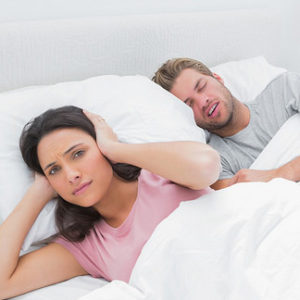Myth #1 Snoring is fine
Snoring is a warning sign that you are not breathing through your nose properly and instead breathing through the mouth. When you breathe through your mouth your body absorbs 20% less oxygen, gives you dry mouth, makes you susceptible to an apnea attack(where you stop breathing during sleep), and reveals that you are getting poor quality sleep. Snoring is disruptive to your partners sleep quality as well due to the noise disturbance. Snoring also shows us that you are less likely to experience quality REM sleep, the time when we dream and balance out our emotions.

Myth #2 More Hours of Sleep=More rest
Sleeping at the right time is more important than hour slept. Our bodies naturally want to be in tune with nature. This means that when it is dark we rest and when the sun is out we are active. Artificial light has really given us the opportunity to do more things at night, but has also taken our bodies more out of tune with nature’s rhythms which poses many health risks. So, if you sleep in until 12pm after going to sleep at 3am, this is not good sleep. Our bodies want to be awake once it becomes sunny meaning that if you woke up at 12pm, you have been asleep for about 6 hours of sun, which is about half of the day. Sleeping during the day should be limited to short naps. Sleeping abnormally long hours is also a sign you might possibly have a sleeping disorder or you could be suffering from depression.

Myth #3 It is okay to not use my CPAP
Many people I have talked to since working in the sleep medicine field will tell me their loved one was issued a CPAP but they do not use it. This is of huge concern. If a doctor has determined that you stop breathing or come very close to it at least 15 times every hour while you are asleep. I am sure you can see how not breathing at night could be a problem and CPAP is the main solution. If you have been administered a CPAP but are still having apnea attacks you may need to use a nasal dilator under the CPAP to make sure the airway is staying open. Sleep apnea that goes untreated takes years off of your life. It increases your chances of heart disease, diabetes, and getting in a fatal car accident. If you or your loved one has a CPAP, please use it and if it is uncomfortable, revisit your doctor to find a more comfortable machine. Another option to help people feel more comfortable using the CPAP is to start using a nasal dilator under the mask.


